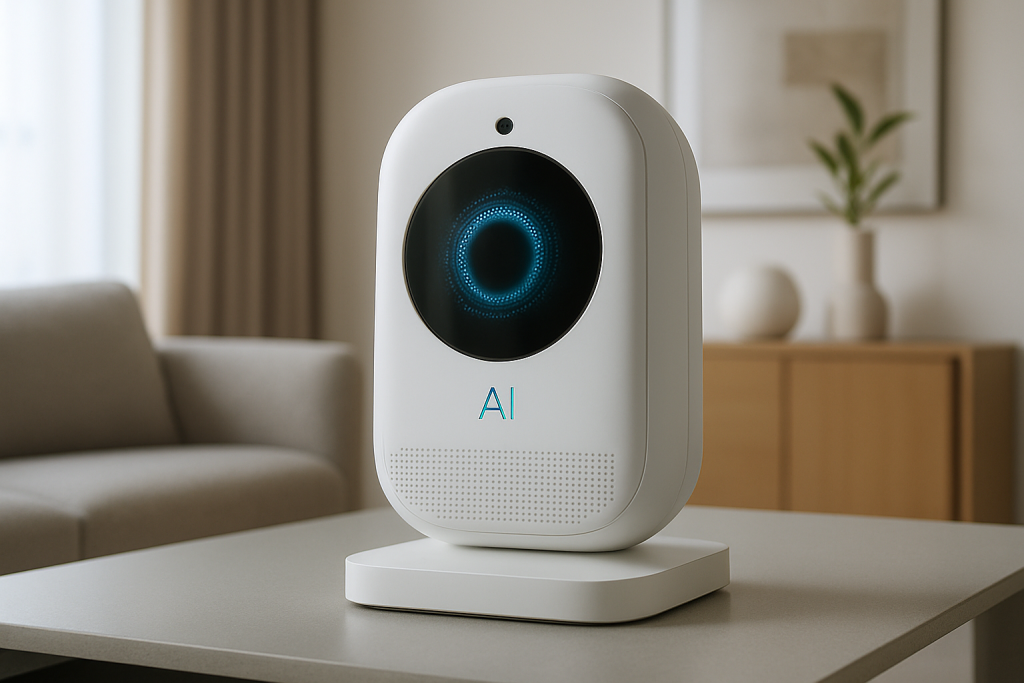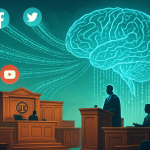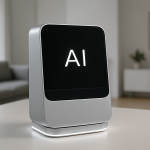The whispers started as a low hum, the kind you hear before a tectonic shift. Then, yesterday, the earth moved. OpenAI, fresh off a funding round that made Midas blush, announced its acquisition of io, the AI hardware startup helmed by none other than Jony Ive, the design maestro who sculpted Apple’s aesthetic for decades. The price tag? A cool $6.5 billion. Suddenly, everyone’s asking: what does this mean for the future of AI, and more importantly, what kind of sleek, minimalist robot butler will we be getting?
Let’s rewind a bit. Jony Ive, the man who made aluminum unibody designs a status symbol, departed Apple in 2019 to form his own design firm, LoveFrom. Then, in 2024, he launched io, a venture shrouded in secrecy, but rumored to be focused on AI hardware that would, naturally, be both powerful and devastatingly beautiful. Think less clunky server rack, more something you’d find in Tony Stark’s workshop. Meanwhile, OpenAI, the purveyor of digital dreams like GPT-4, was busy hoovering up cash. A staggering $40 billion in April of 2025, valuing the company at a mind-boggling $300 billion. That’s more than the GDP of some small countries. This deal, orchestrated by SoftBank and backed by the usual suspects – Microsoft, Coatue, Altimeter, and Thrive – was less a funding round and more a coronation.
The acquisition itself is a fascinating confluence of code and curves. OpenAI isn’t just content with conquering the software realm; they want to build the physical vessels for their digital creations. And who better to craft those vessels than Jony Ive, the man who practically invented the concept of “industrial design porn?” According to OpenAI’s official statement, Ive will be taking on “deep design and creative responsibilities” across the company, focusing on new AI-powered hardware. In other words, he’s not just consulting; he’s diving in headfirst.
The Implications: More Than Just a Pretty Face
This isn’t just about aesthetics, though let’s be honest, a world where AI hardware isn’t an eyesore is a world we can all get behind. This acquisition signals a fundamental shift in how we think about AI. For years, the focus has been almost exclusively on the algorithms, the models, the software that powers the AI revolution. But OpenAI clearly believes that hardware matters just as much. They’re not wrong. Think about it: the iPhone wasn’t just about iOS; it was about the seamless integration of hardware and software. It was about the user experience, the feeling in your hand, the way it looked and felt. OpenAI wants to bring that same level of polish to AI.
Imagine a world where your AI assistant isn’t just a disembodied voice in your smart speaker, but a sleek, responsive device that anticipates your needs and seamlessly integrates into your life. Think less HAL 9000, more something out of “Her,” but, you know, hopefully less emotionally unavailable. This is the promise of hardware-software integration, and it’s a promise that OpenAI, with Jony Ive at the helm, is now poised to deliver on.
The Broader Tech Landscape: A Hardware Renaissance?
OpenAI’s move also reflects a broader trend in the tech industry. Companies are finally waking up to the fact that hardware isn’t just an afterthought; it’s a critical component of the AI ecosystem. We’re seeing a resurgence of interest in custom silicon, specialized chips designed to accelerate AI workloads. Apple, Google, and even Tesla are all investing heavily in hardware, recognizing that software alone can only take you so far. The future of AI is about building complete, integrated solutions, from the silicon up.
This could have significant implications for companies like Nvidia, currently the dominant player in the AI hardware market. While Nvidia’s GPUs will undoubtedly remain crucial for training large AI models, OpenAI’s foray into custom hardware could challenge Nvidia’s dominance in the long run. After all, who better to design the perfect AI hardware than the company that’s building the AI itself?
Ethical and Philosophical Quagmires: Beauty and the Beast
Of course, with great power comes great responsibility, and the marriage of AI and exquisite design raises some thorny ethical questions. As AI becomes more integrated into our lives, it’s crucial that we ensure it’s used responsibly and ethically. A beautiful AI device is still an AI device, and it’s still subject to the same biases and limitations as any other AI system. We need to be mindful of the potential for these devices to be used for surveillance, manipulation, or other nefarious purposes. After all, a wolf in sheep’s clothing is still a wolf.
Furthermore, the pursuit of perfect AI hardware raises questions about accessibility and equity. Will these sleek, minimalist devices be affordable for everyone, or will they become status symbols for the elite? Will the benefits of AI be distributed equitably, or will they further exacerbate existing inequalities? These are questions that we need to grapple with as we move towards a future where AI is seamlessly integrated into our lives.
The Financial Fallout: A New Arms Race?
The financial implications of this acquisition are enormous. OpenAI’s $6.5 billion bet on io is a clear signal that the company is serious about dominating the AI hardware market. This could trigger a new arms race, with other tech giants scrambling to acquire or develop their own AI hardware capabilities. We could see a flurry of acquisitions, partnerships, and investments in the coming years, as companies battle for supremacy in the AI hardware space.
The stock prices of companies involved in AI hardware, such as Nvidia and AMD, could see significant volatility as investors try to predict the winners and losers of this new arms race. The overall impact on the economy is likely to be positive, as the AI revolution continues to drive innovation and create new jobs. However, there’s also a risk that the benefits of AI will be concentrated in the hands of a few powerful companies, leading to increased market concentration and reduced competition.
In conclusion, OpenAI’s acquisition of io is more than just a headline; it’s a watershed moment in the history of AI. It marks a shift from a purely software-centric approach to a more holistic view of AI, one that recognizes the importance of hardware, design, and user experience. It’s a bold move that could reshape the AI landscape for years to come. Now, if you’ll excuse me, I’m going to start designing my dream AI butler. I’m thinking brushed titanium, voice-activated coffee, and a dry wit. The future is here, and it’s looking pretty stylish.
Discover more from Just Buzz
Subscribe to get the latest posts sent to your email.


